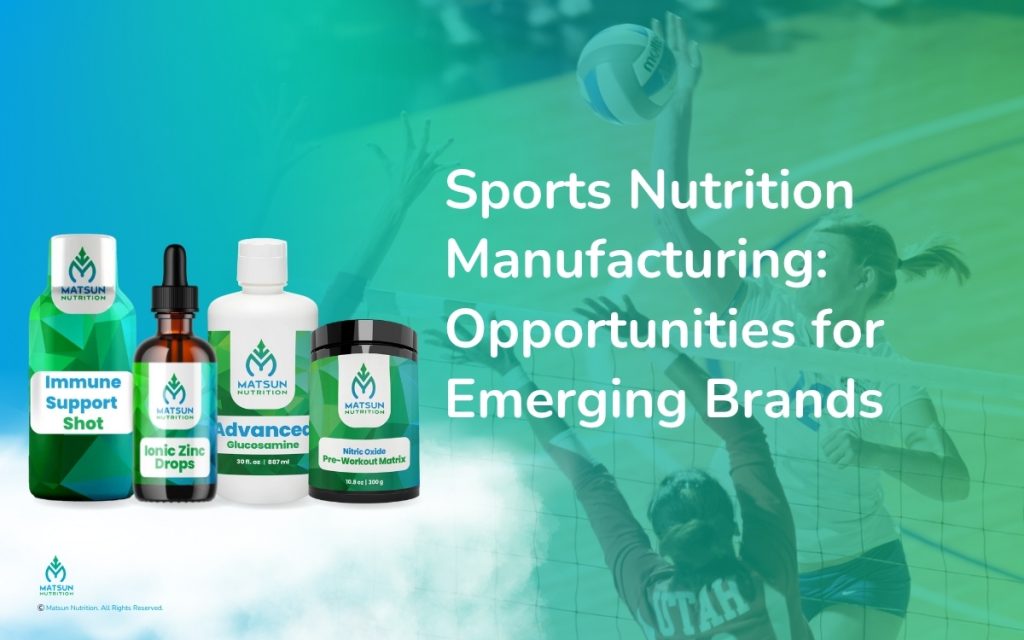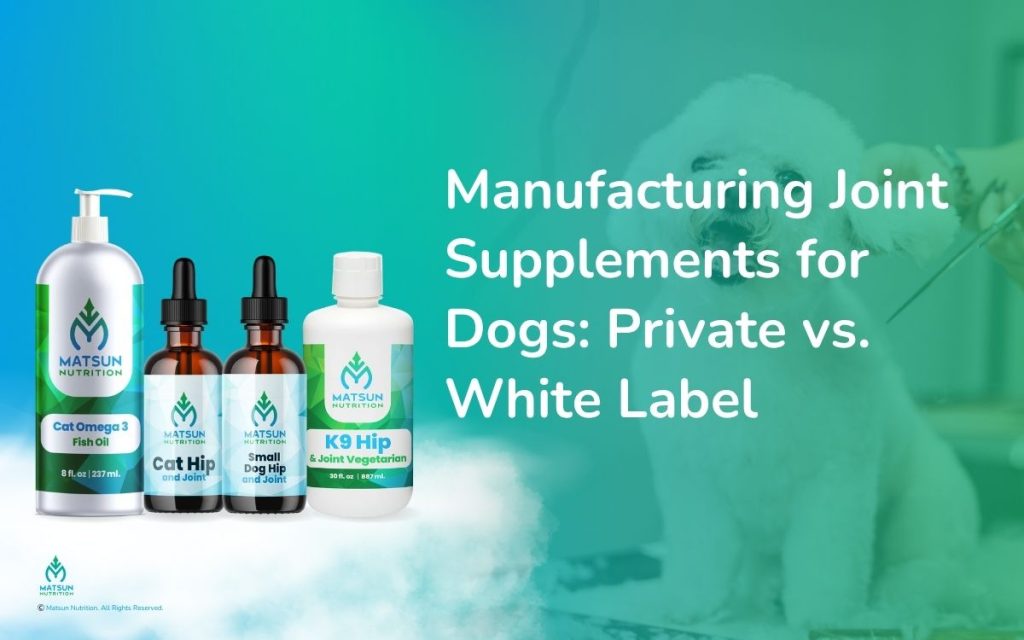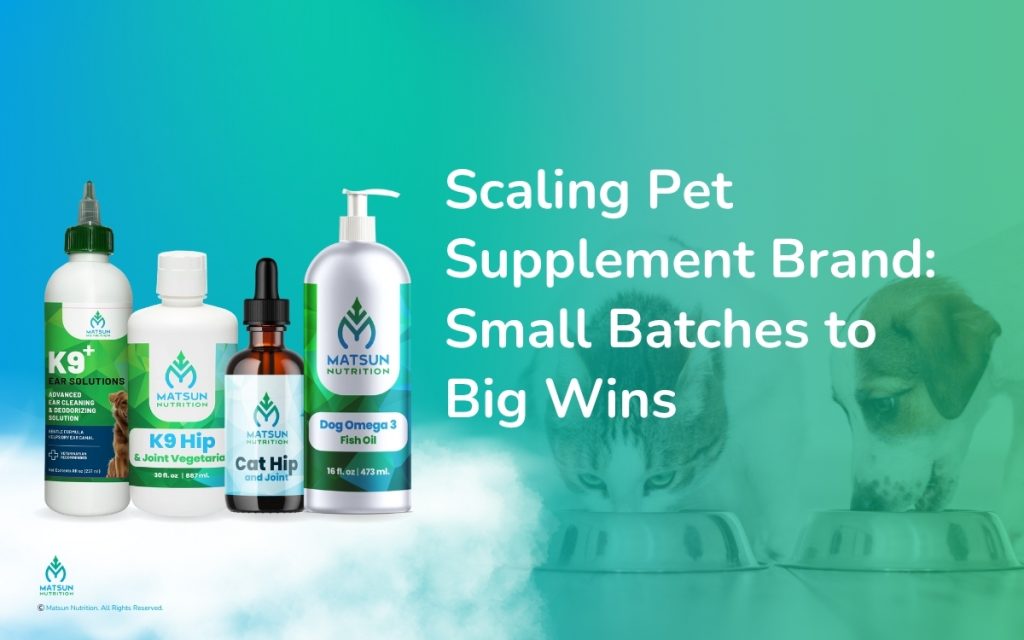If you’re planning to outsource your supplement production, you’ve likely come across the debate of private label vs contract manufacturing. While both approaches allow businesses to bring high-quality supplements to market, they differ greatly in customization, control, and time-to-launch.
In this post, we’ll break down the key differences between private label and contract manufacturing to help you determine which model aligns best with your goals and resources.
What's a Contract Vitamin Manufacturer?
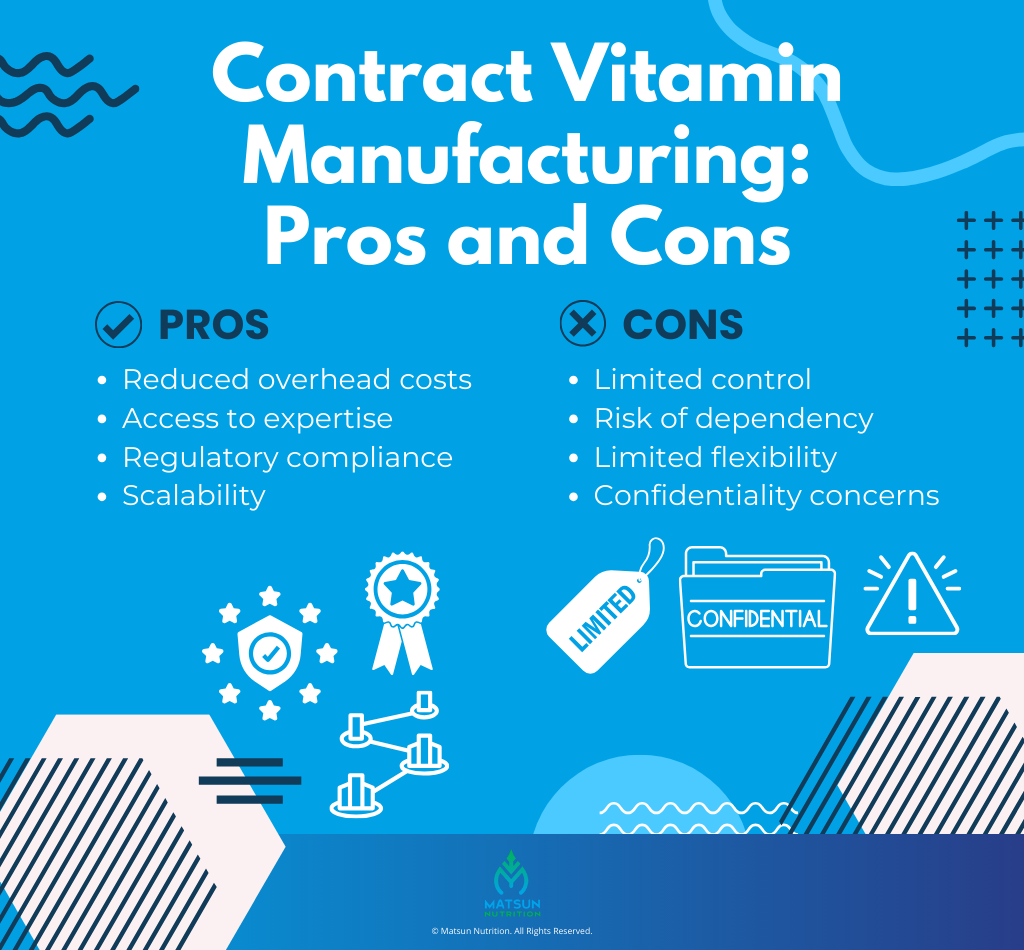
A contract vitamin manufacturer is a third-party company that produces vitamins and other dietary supplements for other companies. Contract vitamin manufacturers provide various services, such as manufacturing, product formulation, packaging, and labeling, allowing businesses to focus on marketing, sales, and customer service.
Reputable contract vitamin manufacturers usually have extensive experience in the dietary supplement industry and are well-versed with compliance requirements.
When comparing private label vs contract manufacturing, each model offers unique advantages depending on your business needs. Private label manufacturing is ideal for those who want to launch products quickly with minimal upfront investment, but it offers limited customization. On the other hand, contract manufacturing provides full control over formulas and branding, though it often requires more time, resources, and industry expertise.
Choosing between private label and contract manufacturing comes down to how much customization and involvement you want in the production process. Understanding the pros and cons of both helps you make the right decision for your supplement brand.
Pros of Contract Manufacturing
Working with a contract vitamin manufacturer offers several advantages, including:
- Reduced overhead costs: Contract manufacturers have the equipment and expertise required to produce supplements efficiently, saving money on overhead costs like equipment, labor, and facilities.
- Access to expertise: Contract manufacturers often have a wealth of knowledge and experience in all aspects of product development, from formulation to labeling.
- Regulatory compliance: Contract manufacturers are usually conversant with regulatory requirements for supplements, which can help ensure your products adhere to industry standards and regulations.
- Scalability: Contract manufacturers can scale their production to meet your changing demands, which can be helpful if your business grows and you receive more orders.
Cons of Contract Manufacturing
There are also a few drawbacks to consider when working with a supplement manufacturer, including:
- Limited control: While outsourcing manufacturing to a contract vitamin manufacturer offers numerous benefits, it comes with the trade-off of limited control over the manufacturing process. This can be a concern if you have specific quality control requirements.
- Risk of dependency: Partnering with a contract manufacturer involves establishing a significant business relationship. However, this external reliance can pose risks if the manufacturer experiences issues such as production delays or changes in ownership.
- Limited flexibility: Contract manufacturers may have their own processes and procedures, so they may not offer you much flexibility.
- Confidentiality concerns: While reputable manufacturers prioritize confidentiality agreements, there’s still a slight risk of information leaks.
What's a Private Label Supplement Manufacturer?
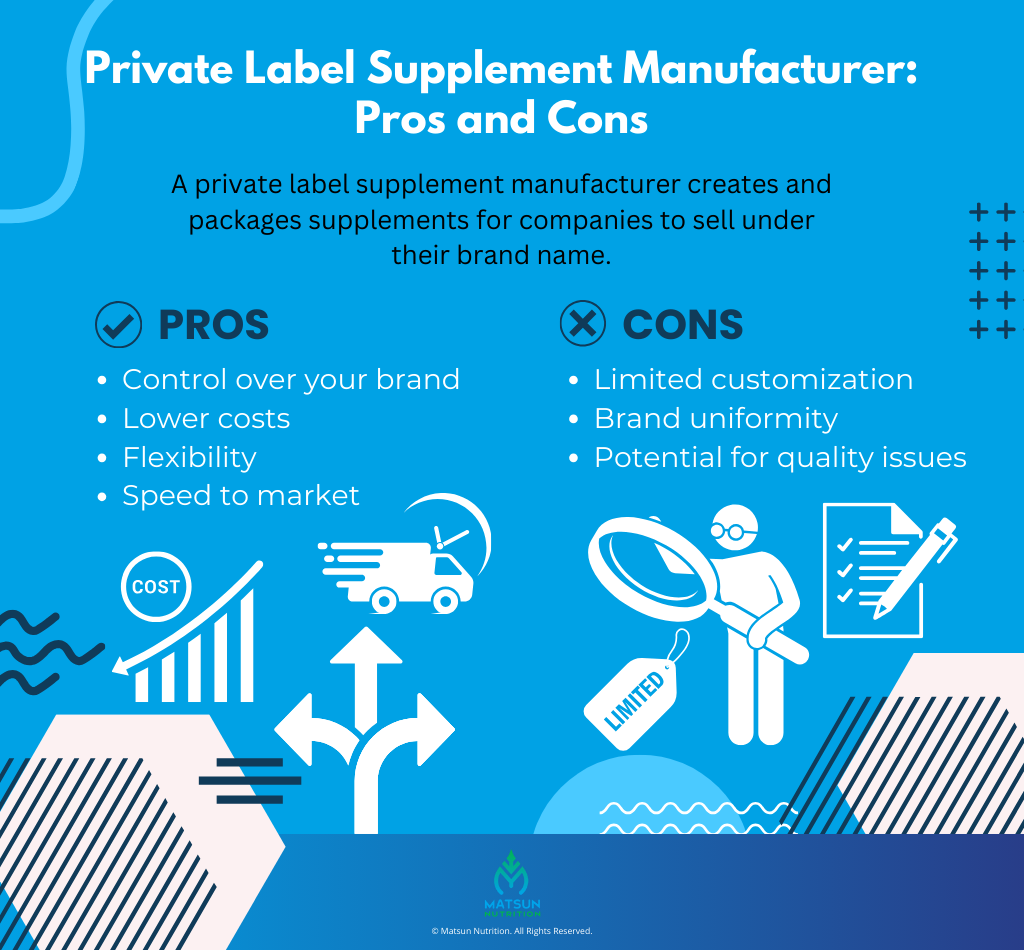
A private label supplement manufacturer produces supplements for other companies that want to sell them under their own brand name. The manufacturer develops the formulas, sources the ingredients, manufactures the supplements, and labels and packages them according to the customer’s specifications.
Pros of Private Label Supplement Manufacturing
Working with a private label supplement manufacturer offers various benefits, including:
- Control over your brand: With private label manufacturing, you have control over your brand, including the product formulations, labeling, and packaging. This allows you to create a differentiated product.
- Lower costs: Private label manufacturing can be cost-effective, especially for businesses with tight budgets. The reduced need for research and development and the cost benefits of producing the same formulations for multiple clients result in cost savings passed on to clients.
- Flexibility: Private label manufacturers are generally flexible and can work with you to develop custom formulas, labels, and packaging that meet your specific needs.
- Speed to market: Private label manufacturing can allow you to get your products to market faster than contract manufacturing, as you don’t have to invest in manufacturing and testing facilities.
Cons of Private Label Supplement Manufacturing
There are also some downsides to working with a private-label supplement manufacturer. These include:
- Limited customization: While you can choose from existing formulations, making significant changes or creating a unique product may be difficult. This lack of flexibility can make it difficult to differentiate your products.
- Brand uniformity: Since private label supplement manufacturers work with multiple clients, there’s a chance your product could be similar to those offered by other brands that work with the same manufacturer.
- Potential for quality issues: If you don’t choose a reputable manufacturer with a good track record, you could face quality control problems or production delays.
Key Differences Between Contract Vitamin Manufacturers and Private Label Supplement Manufacturers
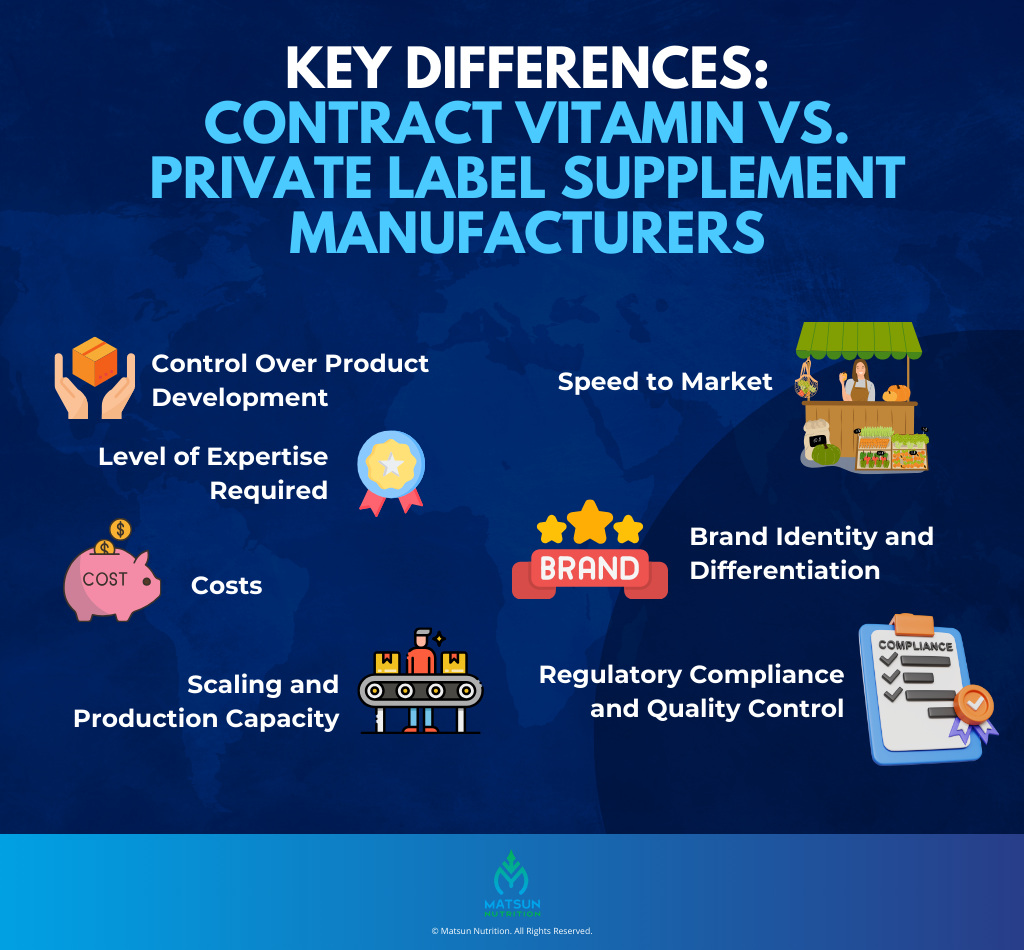
Before settling for either a contract vitamin manufacturer or a private label supplement manufacturer, let’s explore the fundamental differences between the two to help you decide which option suits your business.
1. Control Over Product Development
With contract manufacturing, you retain complete control over the formulation of your products, from selecting the ingredients to designing the packaging. This allows you to customize your products to your target market and develop a unique brand identity.
In contrast, private label manufacturing doesn’t offer as much flexibility. You choose from pre-existing formulations and labeling and packaging options provided by the manufacturer, sacrificing some control over the product development. While this can accelerate your time to market, it curtails your ability to create tailor-made products.
2. Level of Expertise Required
Partnering with a contract vitamin manufacturer requires a higher level of expertise and involvement, as you oversee the entire product development and manufacturing process. This includes testing formulations, sourcing ingredients, and ensuring regulatory compliance.
On the other hand, working with a private label manufacturer requires less hands-on involvement, as the manufacturer handles most tasks. This makes private label manufacturing ideal for entrepreneurs with limited technical expertise who want to focus on marketing, sales, and branding.
3. Costs
Contract manufacturing typically involves high initial costs, as you’ll need to invest in research and development, testing, and quality control. However, while the upfront costs may be high, the potential for cost savings in production can be significant in the long run.
In contrast, private label manufacturing generally incurs lower initial costs, as the manufacturer provides existing formulations and labeling and packaging services. This makes private label manufacturing an attractive option for entrepreneurs just starting out with modest budgets.
4. Scaling and Production Capacity
Contract manufacturing is ideal for businesses that anticipate significant growth and require manufacturers that can rapidly adjust order requirements to meet fluctuating demand.
Conversely, private label manufacturing is better suited for businesses with modest production batches or those seeking a more streamlined approach.
5. Speed to Market
Contract manufacturing often involves a lengthier production process. From crafting custom formulations, conducting rigorous testing, and ensuring compliance with regulatory standards, the process can take long.
On the other hand, private label supplement manufacturing offers a rapid speed-to-market benefit. Since you select from existing formulations, the development process is significantly shorter. This can allow you to capitalize on market trends and consumer demands quickly.
6. Brand Identity and Differentiation
Contract manufacturers can allow you to create exclusive formulations with unique labeling and packaging that set your brand apart from competitors. In contrast, private label supplement manufacturing may present some challenges in terms of brand differentiation. Since multiple brands may choose similar formulations from the manufacturer’s catalog, creating a distinct brand may prove challenging.
7. Regulatory Compliance and Quality Control
Contract manufacturers are well-versed with industry standards and regulatory requirements, ensuring your product meets all compliance requirements. They also have extensive quality control measures in place to ensure the safety and efficacy of your products.
In contrast, private label manufacturers may vary in their regulatory compliance expertise and quality control practices. So, thoroughly vet potential private label manufacturers to ensure they meet industry standards and regulations.
Conclusion
When deciding between contract vitamin manufacturing and private label supplement production, your ideal path will depend on your goals, timeline, and level of customization needed. If you’re seeking full control over formulation and production, a contract manufacturer might be the right fit. But if you’re looking for a faster route to market with proven formulas, private label manufacturing can offer efficiency and ease.
At Matsun Nutrition, we support both models with a wide range of manufacturing capabilities, including liquid vitamin manufacturing, gummy supplement production, and custom powder formulations. Plus, our low MOQ supplement manufacturing options help startups and growing brands scale without high upfront volume requirements.
Whether you’re launching your first product or expanding your line, our team is here to guide you. Contact us today to request a free quote and see how we can bring your supplement brand to life.
FAQs
The main difference between the two manufacturers lies in customization and control. Contract vitamin manufacturers allow you to create customized formulations tailored to your specifications, offering greater control over ingredients and dosage.
In contrast, private label supplement manufacturers provide pre-existing formulations for quicker market entry but with fewer customization options.
The best type of manufacturing will depend on your specific needs and goals. If you want complete control over the production process and have the resources to manage it, contract manufacturing may be a good option for you.
Conversely, if you want a more hands-off approach, have a modest budget, and want to get your products to market fast, private label manufacturing may be a better option.
Contract vitamin manufacturers can adjust production volumes to meet fluctuating consumer demand. Similarly, private label manufacturers offer scalability, although existing formulations may constrain adjustments.
Contract manufacturing involves higher upfront costs due to research and development, but long-term production savings can recoup the funds spent. Conversely, private label manufacturing incurs lower initial costs but may cost more in the long term.
Look for manufacturers with a proven track record of quality, experience in the supplement industry, and a commitment to regulatory compliance. Also, check out reviews about the manufacturer on review sites to get a sense of the manufacturer's reputation.


